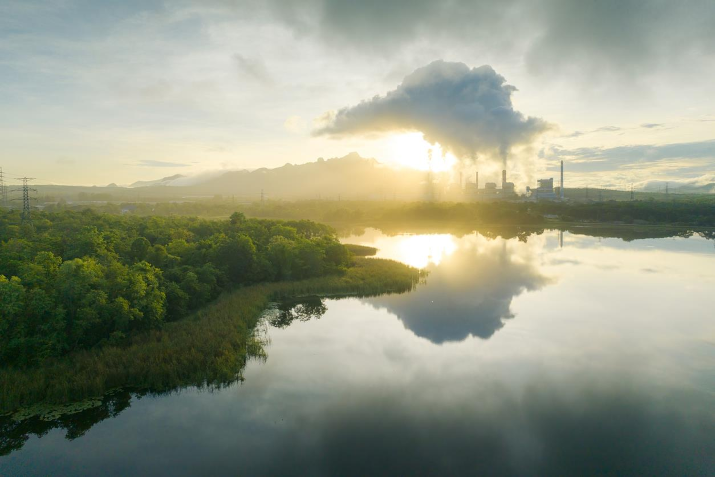Insight Focus
- Indonesia could launch a cap and trade scheme in 2025.
- Singapore’s carbon tax is set to increase next year.
- Thai industry has agreed to launch a carbon credit trading exchange.
The spread of carbon markets has picked up in the last 18 months, spurred by progress at the United Nations where technical experts are busy setting out the ground-rules for a global market in carbon reductions that will be traded among nations as part of their efforts to achieve net zero emissions by the middle of the century.
The so-called Article 6 markets represent a system both of developing carbon reductions through investment in clean technologies, and trading them in both the public and private sectors. However, only governments will be able to use the offsets to meet their self-binding emission reduction goals under the Paris Agreement.
Private sector companies will be able to participate in this market, both in originating the offsets and buying them for voluntary purposes, but purchase and retirement of these offsets will not – at least so far – meet any domestic mandatory goals.
Outside of compliance carbon markets – which mostly do not allow the use of carbon offsets – the use of offsets is presently voluntary in nature, as corporate buyers retire them to help neutralise their carbon footprints.
This has not prevented the development of a number of initiatives to set up carbon markets, or at least carbon trading facilities, in a number of countries outside the OECD core.
While the European Union, the UK, New Zealand, South Korea and some parts of the United States have compliance markets, the growth in voluntary offset trading is taking place in emerging economies in Latin America and Asia, where the bulk of carbon offset projects are located.
The main impetus for this acceleration in the roll-out of trading programmes is the emergence of the UN Article 6 architecture. In order to support transparent, secure and reliable trading in carbon offsets between countries and corporations under the Paris Agreement, countries that host carbon offset projects will need to implement policies that effectively oversee the application of UN-developed rules in their territory.
UN regulations regarding the registration, approval and monitoring of these projects will be carried out by private sector participants amid government regulation and oversight. The UN will also approve methodologies for quantifying the carbon reductions from a large number of different project types.
Host country governments will equally need to decide whether to register projects for Article 6 – a process that will lead to additional carbon accounting requirements – or allow them to generate non-Article 6 credits that could only be used by private sector purchasers.
And with this gradual progress towards a global market, some Asian countries are making good progress in their adoption of carbon marketplaces and trading venues, though they are relatively slow in introducing any form of domestic carbon pricing.
Indonesia stands out as one of the more advanced countries in this regard. The government has been reported as intending to launch a compliance market using a cap-and-trade model as soon as 2025, with an accompanying carbon exchange to start later this year.
As an interim measure, a carbon tax of just over US$2/tonne would be levied on emissions from heavy industry above a pre-set limit. This requires the government to carry out a very detailed study on current emissions in order to establish a baseline emission total, against which the tax would be calculated.
The plan has run into opposition from the coal mining sector, which provides more than 85% of the country’s electricity.
Indonesia is also a large-scale producer of carbon offsets, hosting a number of large avoided deforestation projects, and the country will also operate a carbon trade platform for these and other credits.
The country’s IDX stock exchange, together with the Indonesia Carbon Trade Association, will launch a carbon exchange later this year
Singapore currently levies a carbon tax of S$5 (US$3.77)/tonne on carbon emissions from heavy industry, and is set to push this rate to S$25/tonne from next year and S$45/tonne in 2026. The tax currently applies to the approximately 50 installations in the island nation that emit more than 25,000 tonnes of CO2 a year.
Singapore is also leveraging its status as a global trade hub to support the development of the Climate Action Data Trust, a World Bank-backed project building a meta-registry that will track the generation and retirement of carbon credits from a large number of standards, to ensure that offsets are not double-counted and to underpin the transparency of the various standards.
At the same time, Singapore hosts the ACX Exchange, an electronic platform for trade in a variety of categories of voluntary carbon offsets. Last year, Climate Impact X, which is backed by the state investment fund and Standard Chartered Bank among others, launched CIX Exchange, another trading system that offers similar services to ACX in a separate set of standardised contracts.
Carbon trading has also come to Thailand. In 2022 the Federation of Thai Industries and the country’s Greenhouse Gas Management Organisation (TGO) signed a deal to launch an exchange to trade carbon credits, renewable energy certificates and renewable energy.

The country has pledged to reach peak emissions by 2030 and to achieve carbon neutrality by 2065, but as yet has not enacted any mandatory domestic carbon pricing system.
Vietnam has made few concrete steps towards building a domestic carbon trading system or in setting up a trading platform for carbon credits. The country operates a project registry as part of its participation in Japan’s Joint Crediting Mechanism – a series of bilateral carbon credit trade deals, and has agreed to cooperate with South Korea and Singapore on climate-related issues.
However, its carbon trading regulations date back to 2007 and to the country’s participation in the UN Kyoto Protocol, the forerunner of Article 6. New legislation establishing the legal basis for a national carbon market was passed in 2022, but there have been no recent advances in setting out detailed rules.
Nevertheless, a study carried out by Adelphi and the Gold Standard found that Vietnam plans to implement a compliance market for its heavy industry, along with measures to enable the country’s participation in the global Article 6 market.
Another laggard in the region appears to be the Philippines, which has yet to announce a policy regarding domestic carbon pricing or to develop any trading hub for carbon credits. Some legislative initiatives are being made to introduce either a carbon tax or some for of domestic carbon pricing, but have yet to progress beyond proposals.







